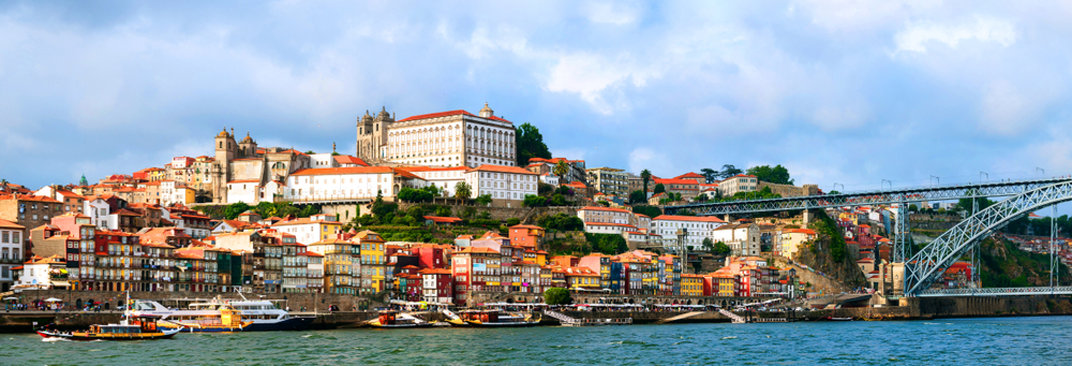
Portugal Finds Value in Diversion of Drug Addicts to Treatment Instead of Incarceration
Imagine the worst possible drug den, the ultimate cesspool of addiction and drug-related misery. That was Portugal in the 1980s and the first half of the 1990s. Then, in just a matter of a few years, the country completely turned their drug problem around and managed to create massive change for the better.
And how did Portugal do it? The nation went through a complete reform in how they approached drugs and health and the criminal implications of drug use. But, most significantly, the Portuguese decriminalized drug use.
Not What We Were First Told
In the early 2000s, newspapers, magazines, and television pundits everywhere were talking about how Portugal was legalizing all drugs. Depending on which newspaper you read or which political commentator you were listening to, you might have heard all different types of stories and viewpoints on what was going on in Portugal. Some supported the country’s change, others didn’t.

But both groups were wrong. It was a classic example of media misreporting. What the country did do was to decriminalize drug use. This meant was that it was still illegal to have and use drugs, but it was not considered a criminal act to do so. The nation shifted their approach from one which viewed drug addiction as a criminal problem necessitating incarceration and punishment, to one which saw a drug habit as a medical issue requiring treatment and care.
And it was not a pretty transition either—but it was the right one.
The History
Not that many people know this, but Portugal was under authoritarian rule from 1933 to 1974. A strict command was first established by Antonio Salazar. (See this article from the Guardian which relates that history and other elements.)
During that strict regime, Portugal was kept mostly cut off from the outside world. Coca-Cola was banned. You had to have a license to own a cigarette lighter. The country was more or less closed off from the rest of the word. The regime suppressed education to keep the population “docile.” The nation completely missed out on the civil rights movements of the 1960s.
The almost forty-year regime ended at the hands of a military coup in 1974. Overnight, borders were opened, and international trade resumed. The country was entirely unprepared for the flood of heroin and other drugs that came washing in soon after, causing rampant addiction and death.
One in ten adults in Portugal had used heroin at some point by the mid-1980s, and one in every 100 adults was succumbing to full-blown heroin addiction. Furthermore, crime statistics were utterly out of control as were HIV infections. By the turn of the century, there were 104.2 new cases of HIV per year for every one million residents. It was one of the highest—if not the highest—HIV rates per capita in Europe.
In 2001, the country shifted its legal approach to drugs. Before 2001, the country was taking an extremely heavy-handed approach to drug use, drug crime, etc. Their war on drugs made ours look almost pleasant. In the United States, we go by the mantra of, “Just say no.” In Portugal, they were saying, “Drugs are Satan.”
All of that changed around the turn of the century. Families started having discussions about drug abstinence at the dinner table. Drug “junkies” started being referred to as “people with a drug illness.” Local, person-to-person views on the drug issue changed. It wasn’t a criminal act anymore. It was a health concern.
The Portuguese Miracle
The Portuguese National Strategy for the Fight Against Drugs was founded in 1999 with Portugal’s first federal mandate for combatting the drug issue. (See again the Guardian article cited above.)
From that mandate going forward, Portugal has done nothing but improve their drug condition. Of course there were struggles and failures along the way. But where the year 2000 saw 104.2 new cases of HIV per one million residents, by 2015 new HIV cases had dropped to 4 per one million residents. Addicts were being treated as medical patients, not scoundrels.

Keep in mind, Portugal is in no way “soft” on drugs as some would think. If someone is caught using drugs in Portugal, they are sent to any of several “Commissions for the Dissuasion of Drug Addiction.” Such a commission will meet with the person, discuss treatment options, and map out what the person is going to do to make sure they don’t use drugs again. No jail cell, no prison sentence. Merely a caring yet firm discussion on how to proceed, with attendant options and the necessary resources for doing so.
Even if a Portuguese resident refuses to cooperate with the Commission for the Dissuasion of Drug Addiction, the punishment is not incarceration. Alternatives consist of fines, mandated community service, revocation of public and social benefits, etc.
How Can We Learn from This?
Portugal still has much work to do to overcome other drug-related issues. For example, drug trafficking into the nation from other countries is still a genuine problem, and is growing, too. People are doing all they can to address drug use and sales within the country, but their policies so far have been ineffective against international trafficking into the nation.
So it’s a work in progress. But we can learn two things from the Portugal scene:
- We shouldn’t be so set in our ways here in the United States. During the time it took Portugal to open their borders, experience one of the worst drug addiction epidemics in the history of Europe, take a heavy-handed approach to drug use, then flip 180 degrees and shift to treatment-positive options, the United States was continuing the “War on Drugs” policies that date back to the 1970s. Let’s change it, shall we?
- The second thing we can learn is the value of diversion. Diversion, or “diversion sentencing” as it is sometimes called merely means sending a drug user or addict to a different treatment setting than a simple jail cell. The goal is to send the individual to treatment before they end up in the criminal justice system. Sometimes, the criminal justice system is unavoidable. But if we give struggling addicts a chance to get better first, many of them likely will.
Our drug problem is always changing and evolving. That’s why it’s important to look at how other nations have approached this issue and whether their programs were successful.
Sources:
https://www.theguardian.com/portugals-radical-drugs-policy-is-working-why-hasnt-the-world-copied-it


 ®
®